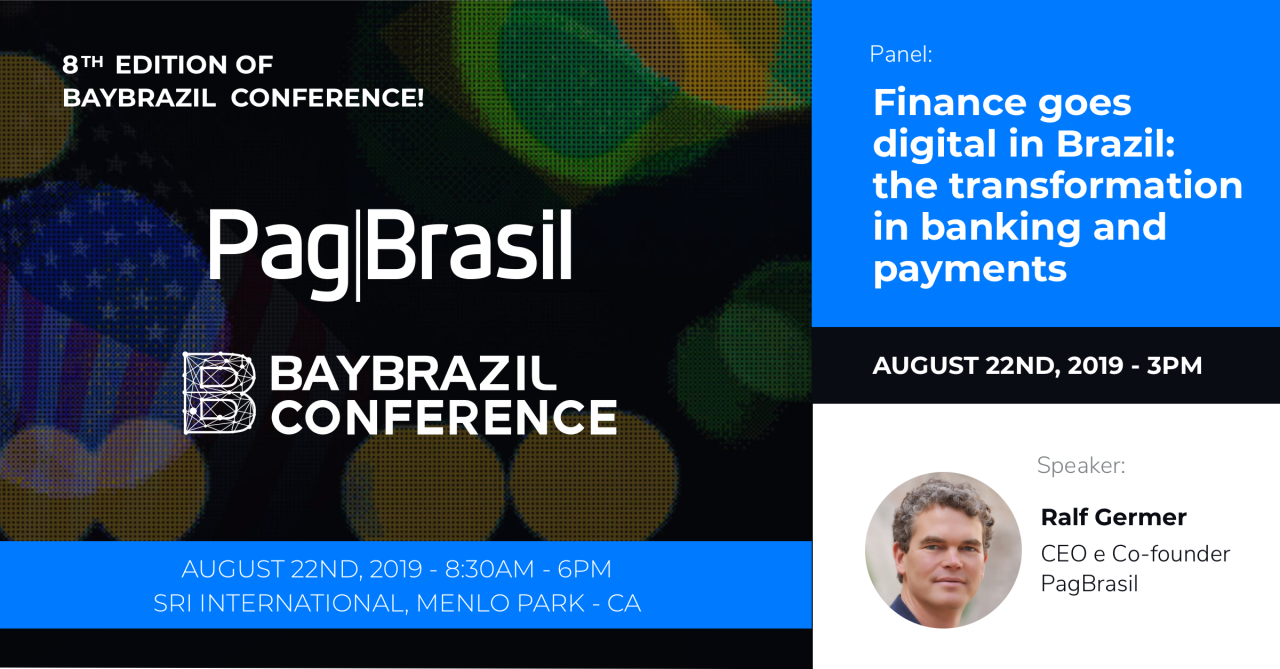Fintech companies are transforming the future of payments. They are catering for a digital-first population and creating disruption in an industry that has lagged behind in innovation. They are also largely responsible for the inclusion of the unbanked in the financial system. The wide adoption of mobile devices and the internet around the globe play a huge role in this scenario.
Inclusion is one of PagBrasil’s mantras and it holds true when we take into account that, to this day, there are still over 55 million unbanked adults in Brazil. Among our payment solutions, standing out are our unique Boleto Flash® and PEC Flash® that enable e-commerce consumers who do not have access to a credit card or a bank account to pay for their purchases.
Our CEO, Ralf Germer, has spoken in the past about how inclusion can drive e-commerce growth in Brazil and how the payments industry is changing to serve the unbanked, as well as people looking for innovative solutions. Ahead of his participation during a session at the annual BayBrazil conference on August 22 at SRI International in Menlo Park, which will bring together entrepreneurs, investors, and private-sector leaders to discuss science, technology and innovation, and Brazil’s role in the global economy, Ralf sat down with Margarise Correa of BayBrazil. He shared his point of view about a maturing innovation ecosystem and financial system that has created a booming fintech sector in Brazil, how millions of unbanked consumers in the country are now using new technologies to spur on Brazil’s e-commerce market, and how Brazil compares to other fintech markets around the world.
Check out their conversation below:
Margarise: Fintech has been a booming sector, particularly in Brazil, for the last several years. What trends (or solutions) do you anticipate for the industry in the coming years? Do you think that big Brazilian banks will shrink substantially in the future?
Ralf: Yes, the Brazilian fintech market has been booming for several years and will continue to do so. We will even see more growth and innovation over the coming years. On one hand, Brazil has been a financial market dominated by a few players, and on the other, there is the big challenge of including 55 million unbanked adults in the financial system. The Central Bank of Brazil has successfully taken a series of measures to reduce concentration, stimulate innovation and foster financial inclusion. This has resulted in significant changes during the past years. In 2007, Brazil had an oligopoly of two card acquirers, and today there are around 20 Brazilian and international acquirers that compete fiercely for a growing market.
Similar trends are ongoing in the lending or private banking sector, with challenger banks successfully changing the market paradigms. The next big thing in Brazil will be driven by more cost-effective payment systems that finally unlock a huge market of unbanked people. We are seeing many innovative initiatives from all different types and sizes of companies, including banks, technology companies, startups, payment firms or marketplaces that come up with more and more promising propositions.
Margarise: How would you compare and contrast the fintech market in Brazil with other emerging countries?
Ralf: Brazilians are open to new technology, which makes it easier to drive early adoption of innovations coming to market there. The Central Bank of Brazil, as the county’s regulator, is facilitating transformation. I would position Brazil in several areas, from a regulatory point of view, closer to Singapore, where fintech innovation is a priority, than to a highly regulated market such as the European Union. Other than China, where two private conglomerates dominate the complete payment market, Brazil’s Central Bank is creating one regulated instant payment system that will be open and accessible for anyone, so there is lots of room for innovation.
Do you want to know more? Check out the details of the conference:




